TORONTO (June 22) — Tragically for the Maple Leafs and their long–suffering fans, Auston Matthews will become the highest–paid hockey player of all time… probably in the next few months. Unwittingly, yet unavoidably, this will doom the Leafs to playoff oblivion and prolong the record Stanley Cup drought for as many years as the club extends his contract. A 60–goal regular season and a man–crush from all corners of the local media has clouded the perpetual inability of Auston to elevate performance when it matters. The truly great ones become increasingly competent as rounds accrue in the two–month playoff slog. Not worse, as did Matthews during his goal–less (and soul–less) performance against upstart Florida this spring. He is largely the product of media hype.
Comparisons between eras are always fraught with peril, given how the National Hockey League has expanded since 1967 (from six to, now, 32 teams). Changes in rules and the size of goaltending equipment has added to the ambiguity. But, there is a common thread that links the decades. It exists among those that have won the Hart Trophy as most–valuable player in the regular season, an award earned by Matthews for his franchise–leading goal eruption a year ago (2021–22). Reputations, however, are made and broken in the Stanley Cup playoffs. And, that is where Auston has been an abject failure for the Blue and White — the reason I have vigorously campaigned for the Leafs to trade him before next week (July 1), when he assumes full control of his future with a no–movement clause. Under no circumstance has Auston earned that level of jurisdiction over the team; former general manager Kyle Dubas (now running Pittsburgh) handcuffed the organization beyond measure by equipping Matthews, Mitch Marner and William Nylander with unwarranted contract restraints, beginning on Canada Day.
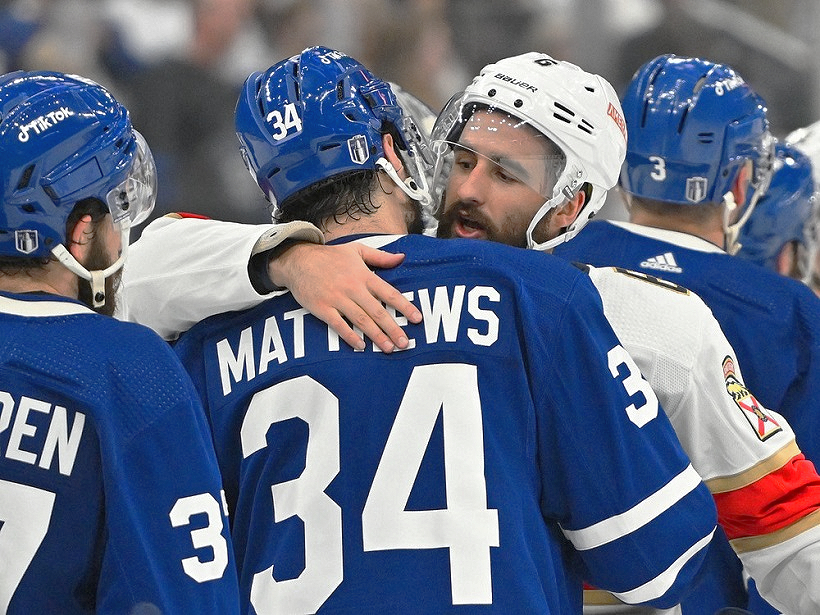
If you’re wondering how Auston stacks up against other forwards that have won the Hart Trophy, continue reading. I couldn’t possibly make my point more clearly about Matthews ranking far beneath those that are capable of excelling throughout the playoffs. The prolific regular–season marksman has a paltry 44 points in 50 Stanley Cup matches. Never has he dominated a playoff round… or playoff spring. As such, the Hart Trophy correlations spelled out, below, do not paint a healthy picture for the Maple Leafs and their immediate future.
These comparisons after seven NHL seasons:
MAURICE RICHARD, Montreal Canadiens
b. Aug. 4, 1921 / d. May 27, 2000
HART Trophy: 1946–47
Rookie Season: 1943–44 / Seventh Season: 1949–50
Auston Matthews has twice won the regular–season award for most goals in the NHL named in memory of Montreal’s legendary Rocket. By Year 7, Richard had led the playoffs in goals scored on four occasions, two of which led to Stanley Cup victories (1944 and 1946) for the Canadiens.
GORDIE HOWE, Detroit Red Wings
b. Mar. 31, 1928 / d. June 10, 2016
HART Trophy: 1951–52, 1952–53, 1956–57, 1957–58, 1959–60, 1962–63
Rookie Season: 1946–47 / Seventh Season: 1952–53
Mr. Hockey had two Stanley Cups (1950 and 1952) on his ledger by Year 7, though he appeared only once in the ’50 playoffs after sustaining a near–fatal head injury against Toronto. NHL titles would follow in Years 8 and 9. Howe led the playoffs in 1949 with eight goals scored.
TED KENNEDY, Toronto Maple Leafs
b. Dec. 12, 1925 / d. Aug. 14, 2009
HART Trophy: 1954–55
Rookie Season: 1943–44 / Seventh Season: 1950–51
World War II robbed the great Teeder of the 1945–46 NHL season. By Year 7, however, he had won five Stanley Cup titles with the Maple Leafs and had twice (1945 and 1948) led the playoffs in goals scored.
JEAN BELIVEAU, Montreal Canadiens
b. Aug. 31, 1931 / d. Dec. 2, 2014
HART Trophy: 1955–56, 1963–64
Rookie Season: 1953–54 / Seventh Season: 1959–60
Le Gros Bill, remembered for being among the most–dignified players and executives in NHL history, had five consecutive Stanley Cups on his resume by Year 7. In 1956, he led the playoffs in goals (12) and points (19). He was the first winner of the Conn Smythe Trophy as playoff MVP — in 1965, after Montreal defeated Chicago in a seven–game Cup final.
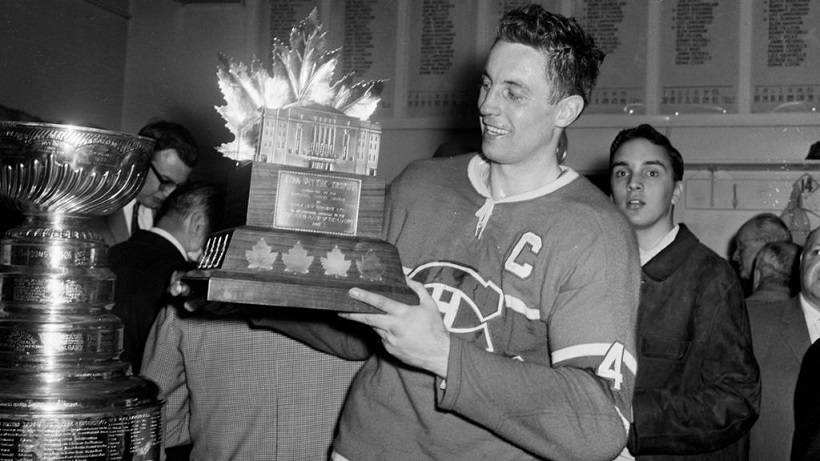
BOBBY HULL, Chicago Black Hawks
b. Jan. 3, 1939 / d. Jan. 30, 2023
HART Trophy: 1964–65, 1965–66
Rookie Season: 1957–58 / Seventh Season: 1963–64
Like Matthews with the Leafs, the Golden Jet was a pure goal scorer. Chicago won the Stanley Cup in 1961, his fifth NHL season. In his first seven playoff years, Hull led the playoffs in goals on three occasions (1962–63–65).
STAN MIKITA, Chicago Black Hawks
b. May 20, 1940 / d. Aug. 7, 2018
HART Trophy: 1966–67, 1967–68
Rookie Season: 1959–60 / Seventh Season: 1965–66
Chicago won the Stanley Cup in Mikita’s second NHL season, as he led the 1961 playoffs with six goals. The following year, the Black Hawks were defeated by Toronto in the Cup final, but Mikita led all playoff participants with 15 assists and 21 points in 12 games.
PHIL ESPOSITO, Boston Bruins
b. Jan. 20, 1942 (Age: 81)
HART Trophy: 1968–69, 1973–74
Rookie Season: 1963–64 / Seventh Season: 1969–70
A huge playoff disappointment (ala Matthews) in his early years with Chicago, Esposito erupted after a May 1967 trade to Boston, becoming hockey’s greatest goal scorer. The Bruins won the Stanley Cup in his seventh season. He led the 1969 and 1970 playoffs in all three statistical categories, poring in 13 goals and 27 points in just 14 games of the 1970 tournament. A second Cup followed in 1972.
BOBBY CLARKE, Philadelphia Flyers
b. Aug. 13, 1949 (Age: 73)
HART Trophy: 1972–73, 1974–75, 1975–76
Rookie Season: 1969–70 / Seventh Season: 1975–76
The antithesis of Auston Matthews. A born leader… in the regular season and playoffs. By Year 7, he had three Stanley Cup final appearances, with consecutive victories in 1974 and 1975, as Philadelphia became the first expansion team to win the NHL title. Only the brilliance of goalie Bernie Parent prevented Clarke from winning the Conn Smythe Trophy in the Flyers’ two championship runs. He twice led the playoffs in assists (1975 and 1976).
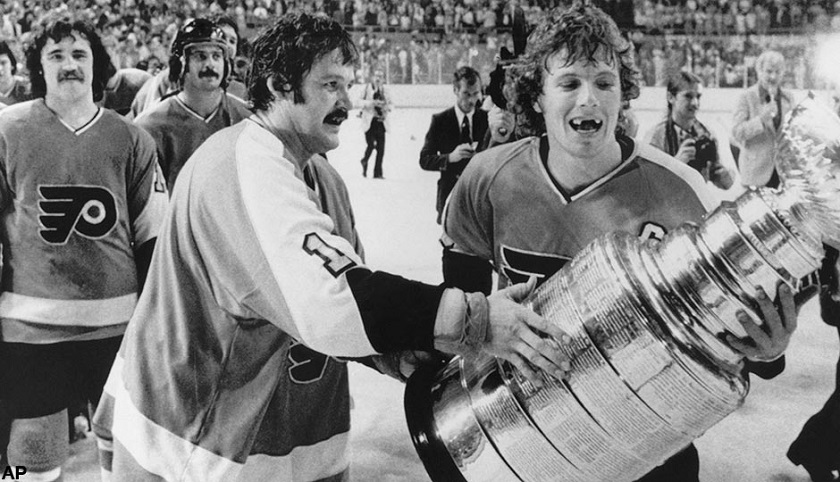
GUY LAFLEUR, Montreal Canadiens
b. Sep. 20, 1951 / d. Apr. 22, 2022
HART Trophy: 1976–77, 1977–78
Rookie Season: 1971–72 / Seventh Season: 1977–78
Another slow starter in the NHL, the Flower busted out in his fourth season (1974–75), beginning a string of six consecutive years with at least 119 points. By Year 7, he had won the Stanley Cup four times, twice leading the playoffs in goals and twice in points. He won the 1977 Conn Smythe Trophy with 26 points in 14 games.
BRYAN TROTTIER, New York Islanders
b. July 17, 1956 (Age: 66)
HART Trophy: 1978–79
Rookie Season: 1975–76 / Seventh Season: 1981–82
Another playoff warrior. By Year 7, Trottier had won three of his four consecutive Stanley Cups with the Islanders… and the 1980 Conn Smythe Trophy. He twice led the playoffs in points, compiling 58 in 40 games.
WAYNE GRETZKY, Edmonton Oilers
b. Jan. 26, 1961 (Age: 62)
HART Trophy: 1979–80 to 1986–87. Then, 1988–89 with Los Angeles
Rookie Season: 1979–80 / Seventh Season: 1985–86
I’m not going to offend No. 99 with a comparison to Matthews. There isn’t one. Gretzky’s Stanley Cup–record 47 points (in 18 games) in 1985 is three more than Auston’s career total in 50 matches.
MARK MESSIER, Edmonton Oilers
b. Jan. 18, 1961 (Age: 62)
HART Trophy: 1989–90, 1991–92 (with the Rangers)
Rookie Season: 1979–80 / Seventh Season: 1985–86
See Gretzky. Marvelous Mark had more playoff leadership in his small toe than Matthews in his entire body.
MARIO LEMIEUX, Pittsburgh Penguins
b. Oct. 5, 1965 (Age: 57)
HART Trophy: 1987–88, 1992–93, 1995–96
Rookie Season: 1984–85 / Seventh Season: 1990–91
More comparison nonsense. Lemieux won two Stanley Cups by his third playoff year. Matthews has 44 points, thus far, in 50 playoff games over seven seasons. Mario had 44 points in the 1991 tournament, alone.
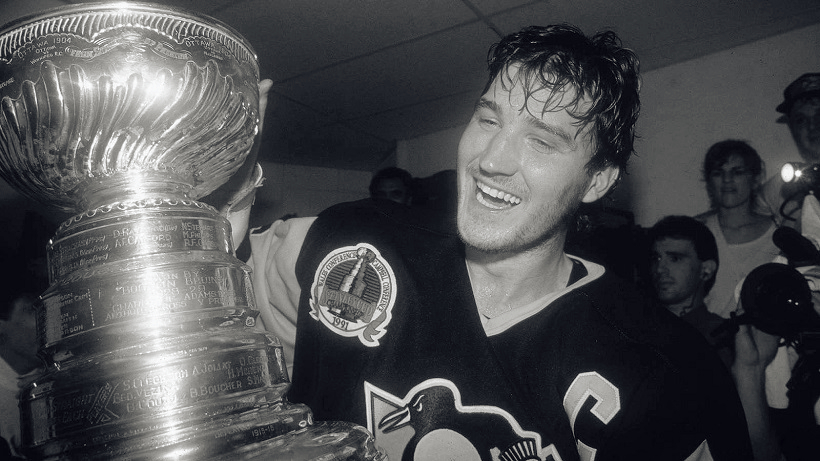
JAROMIR JAGR, Pittsburgh Penguins
b. Feb. 15, 1972 (Age: 51)
HART Trophy: 1998–99
Rookie Season: 1990–91 / Seventh Season: 1996–97
Matthews can only wonder. Jagr won the Cup in his first two seasons, compiling 37 points in 45 playoff games.
JOE SAKIC, Quebec Nordiques/Colorado Avalanche
b. July 7, 1969 (Age: 53)
HART Trophy: 2000–01
Rookie Season: 1988–89 / Seventh Season: 1994–95
The current GM of the Avs won the Stanley Cup in his third playoff year (1995–96)… and the Conn Smythe Trophy with a playoff–leading 18 goals and 34 points in 22 games. He combined for 59 points in the springs of ’96 and ’97, 15 more than Matthews through seven playoff years.
PETER FORSBERG, Quebec Nordiques/Colorado Avalanche
b. July 20, 1973 (Age: 49)
HART Trophy: 2002–03
Rookie Season: 1994–95 / Seventh Season: 2000–01
Riding shotgun with Sakic in Denver, Forsberg had two Stanley Cup titles by Year 7 in the NHL. He led the playoffs in 1999 and 2002, combining for 51 points in 39 games. Or, seven more than Auston has in 50 playoff dates.
MARTIN ST. LOUIS, Tampa Bay Lightning
b. June 18, 1975 (Age: 48)
HART Trophy: 2003–04
Rookie Season: 1999–2000 (with Calgary) / Seventh Season: 2006–07
The current coach of the Montreal Canadiens won the Stanley Cup as a player with Tampa Bay in 2004, his second playoff year; the same season he copped the Hart Trophy. He had 24 points in 23 playoff matches that spring.
SIDNEY CROSBY, Pittsburgh Penguins
b. Aug. 7, 1987 (Age: 35)
HART Trophy: 2006–07, 2013–14
Rookie Season: 2005–06 / Seventh Season: 2011–12
Another non–comparison to Matthews. Crosby won the Stanley Cup in his third playoff season (2009), the first of his three NHL titles with the Penguins. He led the playoffs with 15 goals that spring. In just two years (2008–2009), Crosby had 58 playoff points, 14 more than Auston’s career total.
ALEX OVECHKIN, Washington Capitals
b. Sep. 17, 1985 (Age: 37)
HART Trophy: 2007–08, 2008–09, 2012–13
Rookie Season: 2005–06 / Seventh Season: 2011–12
Finally, a comparison to the Leafs’ No. 34. Toronto hockey fans and media cheerleaders milk it to the max when defending Matthews. Not until his 10th playoff year did the Great–8 win the Stanley Cup (2017–18) with a playoff leading 15 goals (and the Conn Smythe Trophy). But, remember, Ovie and the Capitals were bowing out, primarily, to Crosby and the great Pittsburgh teams. Matthews has scuffled against such comparatively weak opponents as Columbus, Montreal and Florida. The analogy, therefore, is tepid.
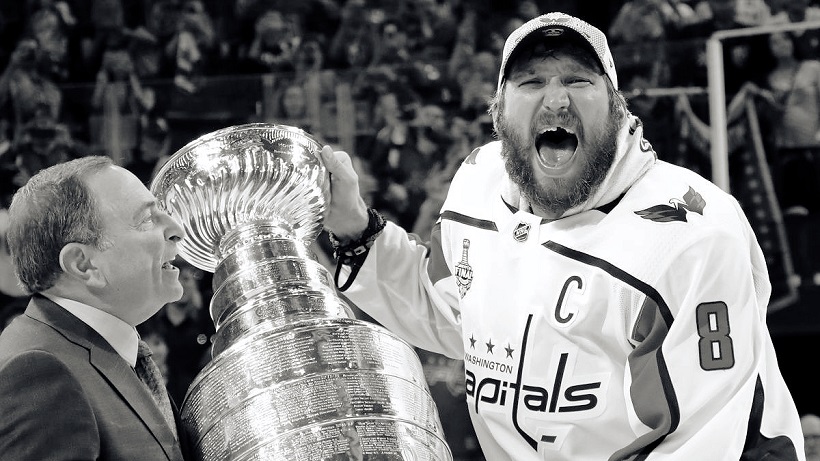
EVGENI MALKIN, Pittsburgh Penguins
b. July 31, 1986 (Age: 36)
HART Trophy: 2011–12
Rookie Season: 2006–07 / Seventh Season: 2012–13
In his third NHL season, Gino (as Malkin is known) turned in one of the great playoff performances, winning the Conn Smythe Trophy with 14 goals and 36 points (in 24 games), both leading totals. Pittsburgh beat Detroit to win the 2009 championship. The prior spring, he had 22 points, as the Penguins lost the final to the Red Wings. In two playoff years, he therefore had 14 more points than Matthews has accrued in seven years. Malkin again topped the Stanley Cup ledger with 28 points in the spring of 2017, winning his third Stanley Cup. The lone comparison between he and Auston is the two letters that begin their last name.
PATRICK KANE, Chicago Blackhawks
b. Nov. 19, 1988 (Age: 34)
HART Trophy: 2015–16
Rookie Season: 2007–08 / Seventh Season: 2013–14
As with Matthews, Kane was the first overall pick of the NHL draft (in 2007). That’s where the similarities end. While Auston hasn’t yet been out of the second playoff round, Kane captured three Stanley Cup titles in his first seven seasons. During those three springs, he amassed 70 points, or 26 more than Matthews in seven years. Kane won the Conn Smythe Trophy in 2013, as Chicago defeated Boston in the Cup final.
NIKITA KUCHEROV, Tampa Bay Lightning
b. June 17, 1993 (Age: 30)
HART Trophy: 2018–19
Rookie Season: 2013–14 / Seventh Season: 2019–20
Fans of the Leafs can dream. By his seventh playoff year, Kucherov had a pair of Stanley Cups. In those two springs (2020 and 2021), he compiled 66 points, or 22 more than Auston’s career total. Through his first seven playoff years, Kucherov rang up 127 points, nearly three times as many as the 44 contributed by Matthews.
EMAIL: HOWARDLBERGER@GMAIL.COM





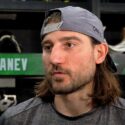


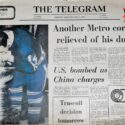






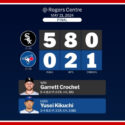
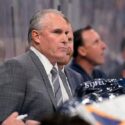
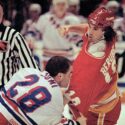
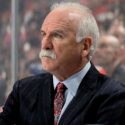

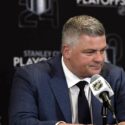


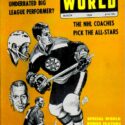





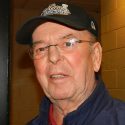

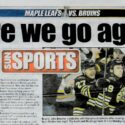




Unfortunately you’re right Howard. I’m sure you know MLSE knows they don’t have to sell hockey here in Toronto, they know they have a gold mine. Us poor long suffering fans will still watch the Leafs, just maybe not as much. MLSE doesn’t have the acumen or desire to really win anything with the Leafs; to them the Leafs are just a toll booth guaranteed profits no matter what happens. Just look at what’s happening with their other teams.
One thing that seems to be overlooked is what happens during the first few years of Auston Matthews’ new contract (assuming he gets one from Toronto). The prognosis seems to be that the cap will only be rising slowly, if at all. So how can Toronto bring in any free agents this year if, due to the increase in Matthews’ contract, not to mention William Nylander’s potential extension, the cap space a year from now is considerably less? With very little help coming from players already in the Leafs’ system, it will be necessary to try an d find help elsewhere.
Maybe Dubas would be interested in acquiring Matthews for the Pens…
For the past few years, I’ve wondered how four so-called elite players can all go AWOL in the post season. I could see one or maybe two players not producing, but all four? Someone in a psych program should do a paper on this crazy behavior.
I would rather have 4 good players who lead and are determined than these 2 prima donnas named Matthews and Marner. Win or lose, at least everyone can hold their heads high instead of the past 7 years of embarrassments.
You are not alone, Howard, I agree completely! Second it for Marner and that list could be way longer but you’ve made your point well.
I think the Ovechkin comparison is actually quite accurate, but perhaps not for optimistic reasons. The Washington Capitals drafted the 2nd leading goal scorer in NHL history and, almost certainly, will have won only one Stanley Cup with him over his career. Now, the Stanley Cup is supremely difficult to win and winning it is an amazing accomplishment. Yet, Ovechkin was the best scorer on a team that captured the SC only once even while he was achieving an historic career. I think that the comparison is quite helpful–not that there’s a guarantee they’ll win a cup in year ten, but that Matthews can have an amazing career that lacks much team success.
“ The truly great ones become increasingly competent as rounds accrue in the two–month playoff slog. Not worse, as did Matthews during his goal–less (and soul–less) performance against upstart Florida this spring. ”
Maybe he was playing with a broken fingernail
Excellent article. I would include Esposito in your comparison nonsense list. This guy was a leader. Can you see Auston doing anything remotely close to what Phil did in that ’72 Summit Series when he carried that team on his back. I know you were doing Cup playoffs but a leader is a leader, always. Crosby in the Olympics, Orr in ’76, Gretz and Mario in ’87. We should be thankful Auston is American.
“Your best players have to be your best players.” This old adage is always true. I knew after all of Dubas’s trades this year, it was put up or shut up, no excuses.
Watching how the team plays when Matthews misses games, it becomes obvious he is the one of the core four who has the least impact & could fetch the best return. All the skill in the world and no inner fire!
I think Leafs new GM should hire Berger to come in once a week and paint the reality for the front office.
The Leafs don’t spend money that wisely. 😛
What are your feelings on Connor McDavid?
I’ll answer with another question. Who would you rather have: Matthews or McDavid?